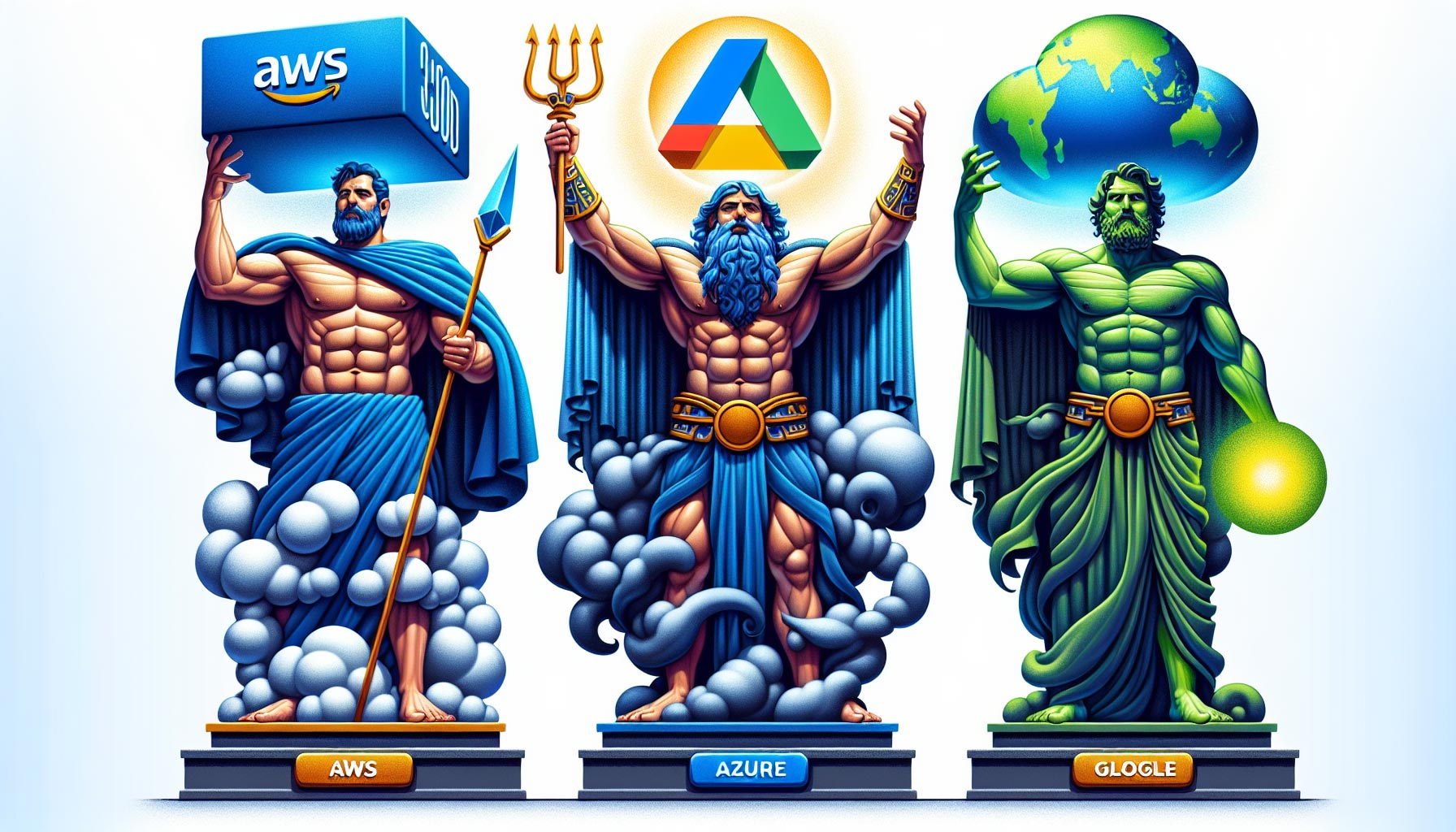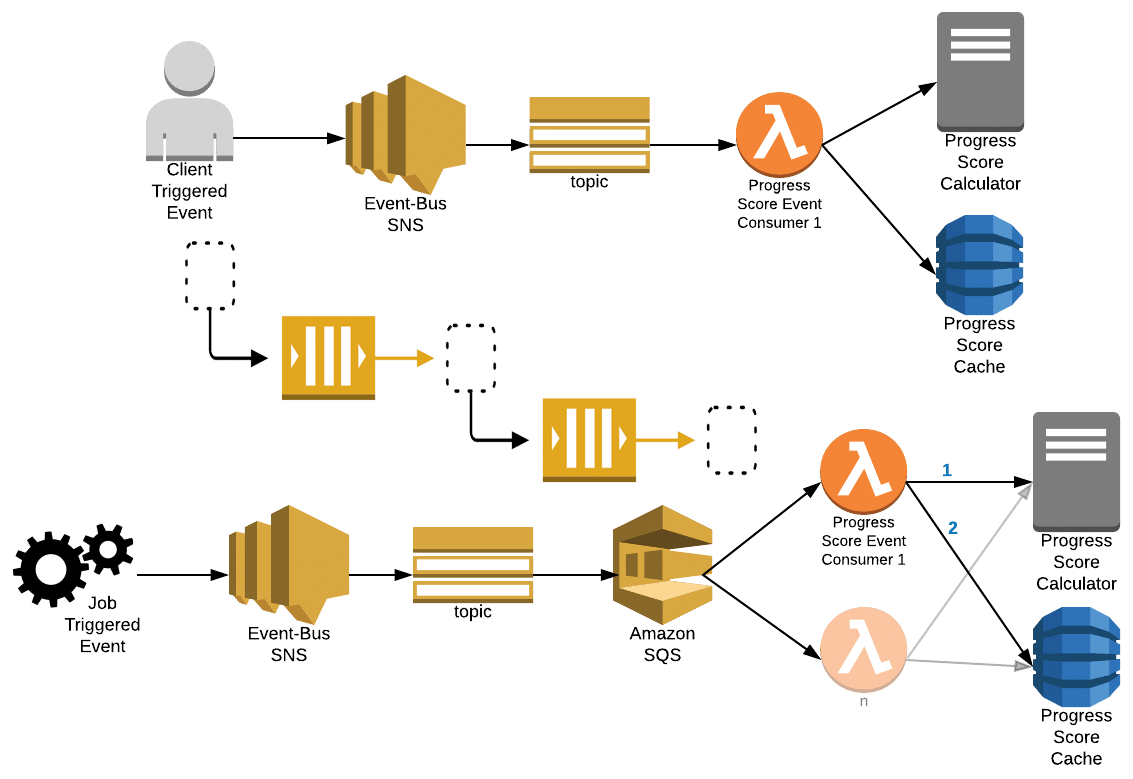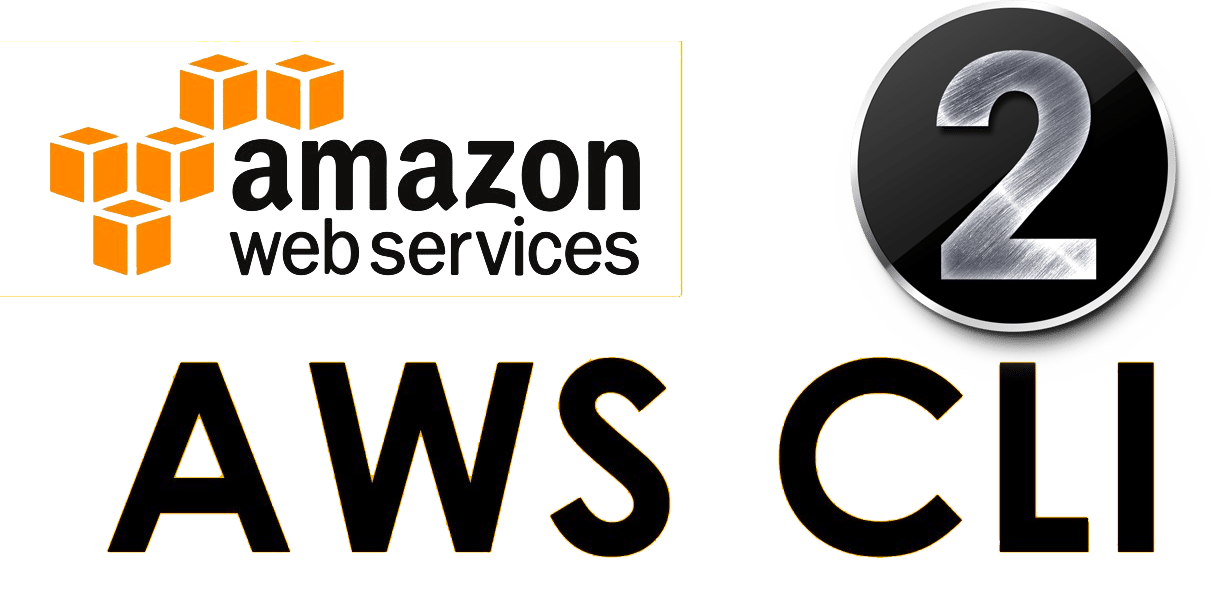28 Jul

In the rapidly evolving world of cloud computing, three major players dominate the market: Amazon Web Services (AWS), Microsoft Azure, and Google Cloud Platform (GCP). Each of these platforms offers a wide array of services and tools to meet businesses’ diverse needs. This article provides a comprehensive comparison of AWS, Azure, and Google Cloud across various parameters, helping you decide which platform is best suited for your needs.
Market Share and Adoption
AWS, Azure, and Google Cloud have established themselves as the leading cloud service providers, but they differ significantly in market share and adoption rates.
- AWS: As the pioneer in the cloud computing market, AWS holds the largest market share. Launched in 2006, AWS has a mature and extensive service portfolio, making it the go-to choice for many enterprises and startups. According to Synergy Research Group, AWS accounts for about 33% of the global cloud market.
- Azure: Microsoft Azure, launched in 2010, is the second-largest cloud provider, with a market share of approximately 22%. Azure benefits from Microsoft’s strong enterprise presence and seamless integration with Windows Server, Active Directory, and other Microsoft products, making it popular among enterprises already using Microsoft technologies.
- Google Cloud: Google Cloud, introduced in 2008, holds around 10% of the market share. While it lags behind AWS and Azure in terms of market share, Google Cloud is known for its strong offerings in data analytics, machine learning, and container orchestration, thanks to technologies like BigQuery, TensorFlow, and Kubernetes.
Compute Services
Compute services are the backbone of any cloud platform, providing the necessary resources to run applications and services.
- AWS: Amazon EC2 (Elastic Compute Cloud) is AWS’s primary compute service, offering a wide range of instance types optimized for various workloads. AWS also provides Lambda for serverless computing, ECS (Elastic Container Service), and EKS (Elastic Kubernetes Service) for containerized applications.
- Azure: Azure Virtual Machines (VMs) are the core compute service, supporting Windows and Linux operating systems. Azure Functions offer serverless computing, while Azure Kubernetes Service (AKS) and Azure Container Instances (ACI) support containerized workloads.
- Google Cloud: Google Compute Engine (GCE) is the main compute service, providing a variety of VM instances. Google Cloud Functions support serverless computing, and Google Kubernetes Engine (GKE) is a fully managed Kubernetes service known for its scalability and ease of use.
Storage Services
Storage is a critical component of cloud infrastructure, offering various options for data storage, backup, and archival.
- AWS: Amazon S3 (Simple Storage Service) is the most popular object storage service, known for its durability and scalability. AWS also offers Elastic Block Store (EBS) for block storage, Glacier for archival storage, and FSx for managed file systems.
- Azure: Azure Blob Storage is the primary object storage service, with Azure Disk Storage providing block storage and Azure Files offering fully managed file shares. Azure also has Azure Archive Storage for long-term data retention.
- Google Cloud: Google Cloud Storage is the main object storage service, known for its high performance and unified API. Persistent Disks offer block storage, and Filestore provides managed file storage. Google Cloud also offers Nearline and Coldline for cost-effective archival storage.
Networking
Networking services ensure secure and reliable communication between cloud resources and on-premises infrastructure.
- AWS: AWS offers a comprehensive set of networking services, including Virtual Private Cloud (VPC), Route 53 for DNS management, CloudFront for content delivery, and Direct Connect for dedicated network connections. AWS also provides advanced networking features like Transit Gateway and Global Accelerator.
- Azure: Azure Virtual Network (VNet) is the core networking service, with Azure DNS, Azure CDN, and ExpressRoute for private connections. Azure also offers networking features like Load Balancer, Application Gateway, and Virtual WAN for global network connectivity.
- Google Cloud: Google Virtual Private Cloud (VPC) provides networking capabilities with Cloud DNS, Cloud CDN, and Dedicated Interconnect for private connections. Google Cloud offers Network Load Balancing, HTTP(S) Load Balancing, and Cloud NAT for advanced networking needs.
Pricing
Pricing is crucial when choosing a cloud provider, as it directly impacts the total cost of ownership (TCO).
- AWS: AWS pricing can be complex due to the vast array of services and options available. However, AWS offers various pricing models, including on-demand, reserved, and spot instances, providing flexibility to optimize costs. AWS also has a free tier for new users.
- Azure: Azure pricing is also multifaceted, with options like pay-as-you-go, reserved instances, and spot VMs. Azure offers cost management tools to help users monitor and optimize their spending. Azure provides a free tier with access to several services for new users.
- Google Cloud: Google Cloud’s pricing is generally considered more straightforward and competitive. It offers on-demand and committed use contracts for VMs, automatically applying sustained use discounts. Google Cloud also has a free tier that provides access to key services.
Security and Compliance
Security and compliance are paramount for organizations moving to the cloud, ensuring data protection and regulatory adherence.
- AWS: AWS provides a robust security framework with services like Identity and Access Management (IAM), AWS Shield for DDoS protection, and AWS Key Management Service (KMS) for encryption. AWS complies with numerous certifications and standards, including GDPR, HIPAA, and ISO 27001.
- Azure: Azure offers comprehensive security features, including Azure Active Directory (AD), Azure Security Center, and Azure Key Vault for encryption. Azure also complies with industry standards and regulations, such as GDPR, HIPAA, and FedRAMP.
- Google Cloud: Google Cloud emphasizes security with services like Cloud Identity and Access Management (IAM), Cloud Security Command Center, and Cloud KMS for encryption. Google Cloud adheres to multiple compliance standards, including GDPR, HIPAA, and ISO 27001.
Conclusion
Choosing between AWS, Azure, and Google Cloud depends on your organization’s specific needs and priorities. AWS is ideal for those seeking a mature, extensive service portfolio and a large ecosystem. Azure is a strong choice for enterprises leveraging Microsoft technologies and seeking seamless integration. Google Cloud excels in data analytics, machine learning, and container orchestration.
Ultimately, the best cloud provider for your organization will depend on service offerings, pricing, security, and compliance requirements. Carefully evaluate each platform’s strengths and weaknesses to make an informed decision that aligns with your business goals.



